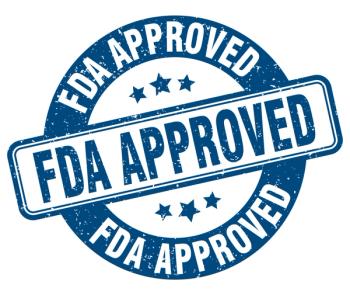
Walgreens carves niche in home care market
Walgreens Health Initiatives home infusion and supplies business
Walgreens carves niche in home care market
Determined to stake a claim in the home care market, Walgreens Health Initiatives has cut itself a piece of that pie in six states with three businesses: home infusion, home medical equipment services, and home respiratory services.
Operating separate and apart from its drugstore business under the name Walgreens Health Initiatives, the facilities are located in Arizona, Florida, Illinois, Indiana, New Mexico, and Wisconsin.
As a full-service home infusion provider, Walgreens Health Initiatives provides a wide range of therapies, such as parenteral nutrition, antibiotics, pain management, chemotherapy, hydration, and injectables, as well as supplies and clinical support.
The home medical equipment portion of the business includes canes, walkers, wheelchairs, and hospital beds.
The home respiratory services business includes CPAP (continuous positive airway pressure) machines, oxygen, and home ventilators.
"In the past three years, weve more than tripled our size. Well be entering other markets most likely through acquisitions," said Ronald D. Allen, R.Ph., P.A. (clinical), v.p. of home care services, Walgreens Health Initiatives.
While Allen would not disclose which markets the company is eyeing, he said, "In home care, most of your business is managed care. So we look at markets where there are a lot of managed care opportunities and where theres a good home care population, which is the aging population."
Allen explained that offering home care services allows pharmacists to be involved in a high level of pharmaceutical care. "Our pharmacists are involved in the clinical management of these patients along with the physician and the nurse," he said. "Theres a significant medication management aspect to a patients home care. The home infusion pharmacists are experts on injectable medications and the routes of administration and clinical monitoring so that these things are safely administered and they achieve the desired outcome."
Allen said Walgreens pharmacists also teach patients how to safely administer their medication. "There are some technical aspects to providing this care to patients. A physician may know what medication he or she wants to administer, but the home infusion pharmacist has the expertise to have input into what kind of IV fluid the medication gets mixed into, the rate its delivered at, and the device that delivers it. A lot of these medications are administered with infusion pumps and involve the pharmacists expertise.
"Pharmacists, who are on call 24 hours a day, seven days a week, understand drug interactions and IV compatibility," Allen continued. "If there are two injectable medications, they need to be administered so the two dont interact, either physically or clinically. Theres a lot of drug-interaction potential. The great majority of these patients are taught to self-administer these medications. You need to make sure they are trained to do that safely," he said.
Why is Walgreens homing in on home care? Allen said the home care market is growing as hospital stays become shorter and more conditions can be treated in the home. For instance, the respiratory service business serves the needs of the increasing number of patients with chronic obstructive pulmonary disease (COPD).
Allen said new technology has made it easier to take care of patients at home. "Pharmacists are instrumental in teaching patients how to use these devices. The devices you use to administer the medication have to be user-friendly. You have to teach the patient how to use these pumps because there is not always going to be a clinician there when the medication is administered."
Allen said these days many medications are administered less frequently during the day, and some medications have to be administered only once a day. "Thats a technological advancement. If a patient has to do something four times a day, theres more chance for complications than if you administer once a day. Its easier and fits more into a patients lifestyle because a lot of these patients continue to work," he said.
Companies are also developing lighter, more versatile, and safer home medical equipment.
How profitable is the home care business for Walgreens? "For all of these businesses, you have to aggressively manage your cost of providing the service. Because it is not as profitable as it was 20 years ago. Margins have come down, but its definitely a profitable business if its managed properly," said Allen.
Sandra Levy
Sandra Levy. Walgreens carves niche in home care market.
Drug Topics
2001;14.
Newsletter
Pharmacy practice is always changing. Stay ahead of the curve with the Drug Topics newsletter and get the latest drug information, industry trends, and patient care tips.























